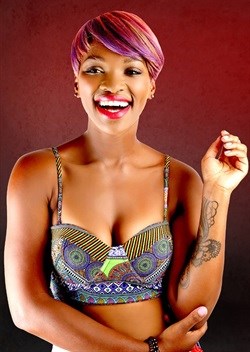St Mary's Foundation asked three inspirational women on top of their game to share their views on education and female empowerment.
The foundation provides educational support to underprivileged girls and prides itself on empowering young ladies to become a generation of influential female leaders.
Dr Pauline Adebayo - Researcher and senior lecturer, UKZN
What are three things every woman should remember for the rest of their lives?
You’re enough, no matter what anyone else tells you. Education will give you true liberty from life’s barriers – opening up your mind and opportunities for success. Lastly, remember when you give it your all – whether in parenting, work or being a good friend – it’s noticed, even when not always acknowledged, and serves you well in the end.
What are the issues in South Africa’s education system and how can they be fixed?
The first is the inadequacy of basic education, in more places (rural, township and even urban settings) than we’d like to admit. It’s this system that lets children get to grade 12 without basic skills. Fixing the problem is a complex task, but must start with acknowledging there still remains a great deal of failure in delivering an acceptable standard of basic education.
The second issue is one of devising a societal culture of learning. We need to understand education can help the poor and break barriers for marginalised groups. We need more people who want to be educated because they see what education does for others around them.
Once a culture of learning takes hold of our society, education stakeholders will do their part to sustain it. Learning environments that attract children must be created. Short-cuts to success mustn’t be glorified – anything that suggests if we look good, we can get to earn a living on TV, and it doesn’t matter how little we know.
How does the glass ceiling impact women’s insecurities?
Unfortunately, women’s insecurities are real, often because the majority of us are socialised in patriarchal settings where division of gender roles are drilled into us. By the time we recognise our potential and capabilities, we often lack the confidence to enter spaces we feel are not for us.
It must, however, be said that some work places are better than others in creating an awareness and indeed implementing policies that facilitate the advancement of women – but the fact that it needs to be facilitated is problematic in itself. Hopefully there are more women breaking barriers to pave the way for others.
Fikile 'Fix' Moeti - Radio DJ and social entrepreneur
What advice would you give to the government to improve education in South Africa?
Unfortunately, a good education comes at a high price in South Africa. With that said, the government needs to provide more well-run state education centres and universities. These institutions will help ease expenses and expectations of private institutions. Teachers aren’t paid well enough, and this is perhaps a direct link to the poor quality of teachers we have in SA.
Coming from an art, entertainment and media education background, I believe South African education needs to evolve to accept unconventional ways of teaching. This doesn’t suggest our education is bad, it just suggests that as a country, our traditional ways of teaching are resulting in us being left behind.
Why is young girls’ education important to you?
I attended boarding school at Clarendon Girls’ High in the Eastern Cape and was blessed with the opportunity to compete, laugh, cry, share, respect, commit, teach, coach and learn. Education for girls is vital because it breeds a strong sense of self and independence, and ultimately empowers you to have a more fulfilled life.
As a social entrepreneur, how do you think we can tackle the issue of unemployed graduates?
This isn’t an easy answer because it’s not an isolated problem. The economy, instability in Africa, governance, leadership and mentoring in schools are all factors. I’m no expert, but a social entrepreneur is an individual who sees a problem and feels the need to fix the problem. Finding the root of the problem and ensuring one can mitigate the various knock-on effects would be a good place to start.
Kim Garner - Writer, editor and head of content strategy at Clockwork Media, former editor at Cosmopolitan Magazine
What advice would you give young girls who are under pressure to conform to what society deems as ‘beautiful’?
I know it feels like what you look like and what you weigh are the most important things in the whole world. But they’re not. There’ll always be someone thinner, prettier, and more tanned than you so you can’t measure your worth according to these superficial things. There’ll always be another photoshopped image of a woman looking super-hot (spoiler alert: it’s ALL photoshop – trust me, I worked at magazines). Focusing on that is a huge waste of time. What matters is that you’re healthy, happy and nice to other people.
What advice would you give to graduates before entering the working world?
Be prepared to do everything. Entering the working world can be daunting and you want to get ahead. The secret? Those who get ahead are the ones who never say, ‘that’s not my job’. Be enthusiastic. Help out. Offer to do everything so you learn everything.
Why should women in 2016 challenge societal norms?
We’re really lucky to be living in a time when women are rallying together to fight for their place in society – from boardrooms to politics. What we’ve been told we can’t do, we’re now saying ‘yes we can’. Women need to stop accepting pats on the head from men, telling them they’re ‘too emotional’ or ‘too soft’ to be in business. Women have to challenge the norm now because enough is enough. We deserve more, and only we can demand that.
For more information about the St Mary’s Foundation, visit www.stmaryschool.co.za/foundation.






































